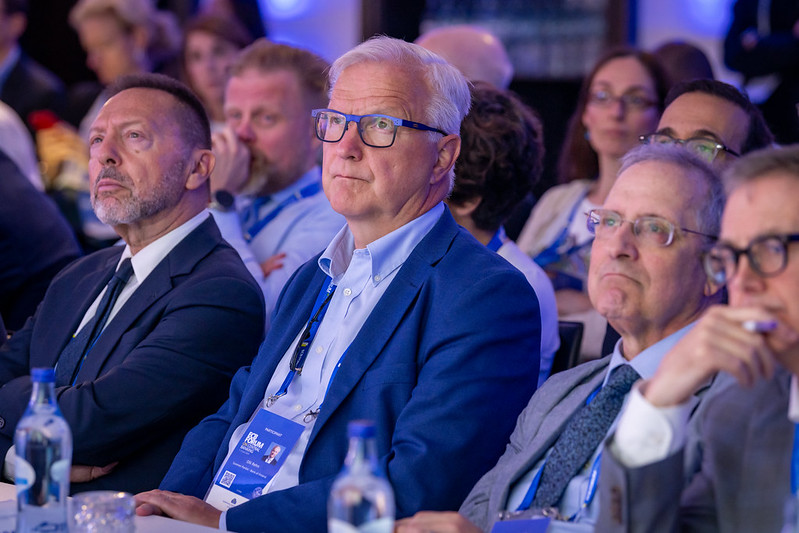By David Barwick – FRANKFURT (Econostream) – European Central Bank Governing Council member Olli Rehn on Monday urged continued vigilance on inflation in both directions, warning that the risks of undershooting the ECB’s 2% target should not be underestimated.
‘[T]here is no reason for self-complacency in Europe’, Rehn, who heads the Bank of Finland, said in an interview with German daily Süddeutsche Zeitung. ‘We must be vigilant now to both directions. On one hand, of course, we have to closely monitor geopolitical developments and price developments in the energy markets in particular. On the other hand, risks of inflation undershooting our target should neither be underestimated.’
Rehn’s comments come amid an ongoing deceleration of euro area inflation, which according to the latest data has eased to 1.9%, slightly below the ECB’s symmetric 2% objective.
‘The ECB takes decisions each meeting on the basis of the recent data and analysis and of course our judgement’, he said. ‘In many ways these days, monetary policy is as much art as it is a science. It’s important to be consistent in its decisions, but at the same time to be agile.’
While inflation in the euro area has receded, Rehn attributed part of that to the weak US dollar and the dampening effect of the ongoing trade conflict, noting that in the US, tariffs had instead resulted in a broader inflationary shock. ‘The trade war seems to dampen inflation in the euro area rather than increase it’, he said.
Asked about the longer-term effects of Russia’s war against Ukraine, Rehn pointed to the persistent divergence in energy costs, with the EU facing prices 30% higher than in the U.S. and Germany facing double the cost. The inflation performance of individual countries has reflected their energy mix, he said, with nuclear and renewables helping to contain price pressures.
‘The top three in terms of lowest inflation rates in Europe included two countries, France and Finland, largely because we both have nuclear power and both have a big share of renewable energy of total energy production’, he said.
Rehn also welcomed the economic agenda of Germany’s new government, calling its efforts ‘very promising as regards supporting growth and productivity.’ Germany’s leadership, he said, is ‘vital not just for its own growth, but for the growth and cohesion of the whole euro area.’
He emphasized the importance of coordinated defense and infrastructure spending to support European industry, recalling that already in 2012 and 2013, the European Commission had urged Germany to raise public investment. ‘These structural weaknesses are still there today’, he said.

